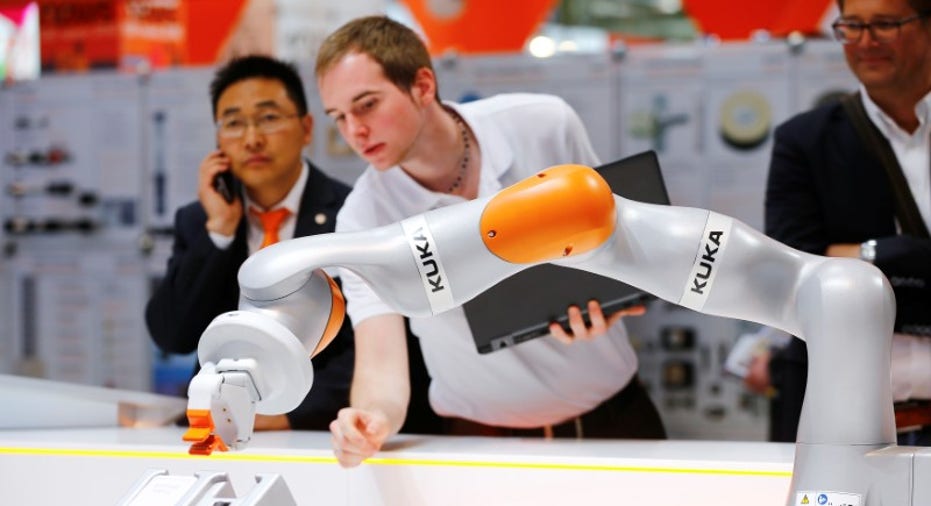You Don't Have to Predict the Future to Succeed in Business

In 2004, Ford Motor Co.'s resident futurist, Sheryl Connelly, led a team that imagined what would happen if an economic shock and a rapid increase in the price of gasoline led to a crash in automotive sales. With the 2008 economic crash and subsequent bailout of the U.S. auto industry, it seemed as if their scenario had come true. But did Ms. Connelly and her team really predict the future? "I always feel compelled to tell people that the same group also spent time, albeit a short one, talking about what would happen if aliens were to land and religions reacted in a way that led societies to crumble because they have no more moral infrastructure," says Ms. Connelly. Predicting the future, it turns out, isn't what futurists do. And in a funny way, that's what makes their work so vital. Many futurists are convinced that, now more than ever, everyone needs to start thinking the way they do. What futurists actually do is facilitate as groups of people work through a highly structured, sometimes months-long process of coming up with as many hypothetical futures as they can, in order to prepare for more or less anything. Until now, futurism has been practiced mostly by large organizations making decisions that might not become policy or products for many years to come. Big companies like Ford and International Business Machines Corp., as well as government agencies and especially the Department of Defense, all employ futurists. Futurism is an academic discipline taught at dozens of universities around the world. In the current moment, with political and economic uncertainty combining with rapid technological change, "it's clear we're not going to make it through this as passengers," says Scott Smith, a futurist for 20 years and creator of the educational resource How To Future. I recently spent a day futuring with Amy Webb, whose recent book "The Signals Are Talking" is a good introduction to the topic. We decided to examine the future of self-driving vehicles. The first thing about futurism that surprised me is that practitioners don't think much about technological change. At least not at first. They start with all the other factors that drive change, from wealth distribution and education to demography, politics, the environment and media. This makes sense: No one would have predicted the rise of Airbnb Inc. by focusing simply on the capabilities of smartphones and the wireless internet. Another surprise: Futurists are relentlessly critical of their own assumptions. Once you're done coming up with wild-eyed notions about what changes might arise as a result of various forces, you tear apart your own work. When Ms. Webb and I settled on the future of self-driving bus transit, we at first imagined that the group transport services proposed today by Lyft Inc. and Uber Technologies Inc. might be the death of bus stops and pre-planned bus routes. But as we picked apart our assumptions, it became clear that the predictable nature of most commutes would mean not dynamic bus routes, but routes that were simply better informed by data about where and how often people actually need mass transit. Good futurists, even though their work is as much art as science, attempt to make it rigorously quantifiable. "We use aggressive computation to try to ask what difference do things in the longer term make to our choices today," says Robert Lempert, a principal researcher at Rand Corp., a policy think-tank. That could mean anything from modeling all the economic and environmental factors affecting construction of a new reservoir or aqueduct, to whether Congress should agree to re-insure companies selling terrorism insurance. One thing all the futurists I talked to had in common was disdain for anyone willing to attempt to predict the future. In futuring circles, paradoxically, this is the mark of an amateur. Actually practicing futurism, even if only for a day, showed me the reason the future is so confounding: Aside from the fact that anything can happen, those unexpected events rapidly compound on one another. This leads to second, third and nth-order effects that can seem completely beyond the realm of plausibility until they happen. Hence the impossibility of predicting financial crises, wars and technological revolutions. But at least futurists can lend us a sort of mental flexibility, as well as the ability to think through trends that are otherwise easily dismissed. For example, my time with Ms. Webb and Ms. Connelly convinced me that the rise of drones might some day lead to height regulations on buildings, and that the graying of America and the fraying of our support networks could lead to social acceptance of euthanasia. And also, of course, that this could affect car sales. Futuring is no longer just for futurists, says Ms. Webb. Like the ability to make a budget or think critically, it's a skill that anyone who has to make long-range decisions should, and can, acquire. Doing it at the scale required by a corporation might require weeks of effort by a team of people, but for individuals it can be much simpler. "It doesn't require a Ph.D. and a complicated nine-month process," says Mr. Smith, who adds, "We can do this in 15 minutes at a table in Starbucks and come to some kind of interesting realization."



















